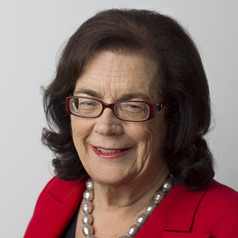LABOR senator Sam Dastyari has succumbed to intense pressure to quit the Senate in the face of continued revelations that he had promoted Chinese interests.

He said his ongoing presence would detract from “the pursuit of Labor’s mission” and he wanted to spare the party “any further distraction”.
Earlier this week, it was revealed that in 2015 Dastyari tried to dissuade Labor’s then shadow foreign minister Tanya Plibersek from meeting a pro-democracy advocate during her trip to Hong Kong.
This followed an earlier revelation that Dastyari had tipped off his Chinese businessman benefactor, Huang Xiangmo – who is of interest to Australian security authorities – that his phone was likely tapped.
Opposition Leader Bill Shorten said that following their discussions, Dastyari had informed him he was resigning from the Senate. “I told him I thought this was the right decision.”
It is understood that Shorten had been in intensive talks with factional allies to resolve the Dastyari crisis. Labor had no power to force Dastyari out of parliament – and sources said he was reluctant to go.
In his statement, Dastyari strongly defended himself, saying he left parliament “knowing that I’ve always honoured my parliamentary oath”.
He said he had always acted with integrity “and I remain a loyal, patriotic Australian”.
Dastyari has been under sustained pressure to quit the Senate, with this week’s leak of his representations to Plibersek seen as part of the effort from within the ALP to get him out. On Monday two frontbenchers, Linda Burney and Catherine King, made it clear he should consider his position.
Sources said some people in Labor’s right had been concerned about the precedent set by Dastyari having to resign – given that he had not done anything illegal.
The government had maintained a constant attack on Shorten for not forcing Dastyari to leave, casting the issue as a test of Shorten’s leadership.
Dastyari’s resignation comes in the dying days of the Bennelong byelection, which a Newspoll in Tuesday’s Australian shows as being extremely close. The Newspoll has the Labor and Liberal parties on a 50-50 two-party-preferred vote, and each on a 39% primary vote.
The byelection follows the resignation of the Liberals’ John Alexander in the citizenship crisis; he is being challenged by former New South Wales premier Kristina Keneally.
Keneally’s name has recently been mentioned as a possible replacement senator for Dastyari if she failed in her bid to win Bennelong.
Bennelong has a significant Chinese community, and the row about Dastyari and also more generally the concern about foreign interference in Australian politics, could have some influence in the byelection, although how those factors will play out is unclear.
Dastyari entered the Senate in 2013. A former secretary of the NSW Labor Party, he has been a significant figure and numbers man in the NSW right faction. In parliament, he has been active on issues of banking and misconduct in that industry.
He said he would continue to be an active grassroots member of the Labor Party.
Shorten said that Dastyari could be proud of what he had achieved as a senator. “He has sought justice for the victims of banking misconduct, exposed the tax minimisations processes of international giants, pushed for a better deal for younger Australians and promoted an inclusive multicultural nation.”
Joseph Cheng Yu-Shek, the pro-democracy activist that Dastyari unsuccessfully tried to persuade Plibersek not to meet, told the ABC that Chinese authorities “operated a very powerful, very resourceful machinery trying to influence the policies of various foreign countries”.
“This machinery tries to cultivate ties with influential politicians, tries to persuade them to be friends of China, and as friends of China, they should avoid meeting enemies of China,” he said.
“If these situations become effective, the politicians concerned will be rewarded and then they will be pressured to do something even more compromising later,” he said.
Michelle Grattan is a professorial fellow at the University of Canberra. This article was originally published on The Conversation.
Who can be trusted?
In a world of spin and confusion, there’s never been a more important time to support independent journalism in Canberra.
If you trust our work online and want to enforce the power of independent voices, I invite you to make a small contribution.
Every dollar of support is invested back into our journalism to help keep citynews.com.au strong and free.
Thank you,
Ian Meikle, editor




Leave a Reply